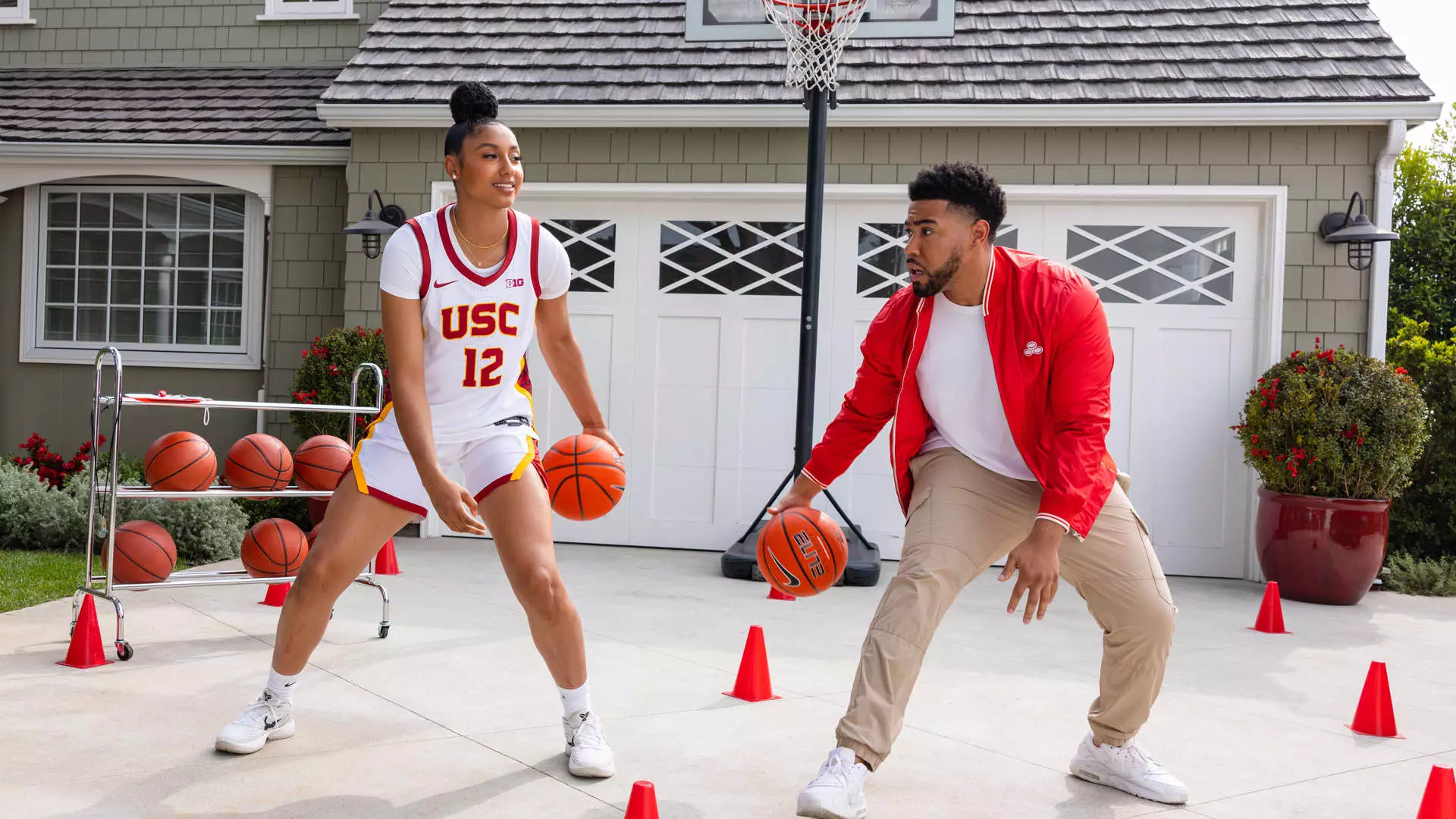State Farm’s Strategic Investment in Women’s Sports: A Game Changer in Marketing

The landscape of sports marketing is evolving, with brands increasingly recognizing the power and potential of women’s athletics. State Farm, an insurance leader known for its extensive advertising campaigns, is making significant strides in this area with its recent partnerships. The company’s proactive approach sheds light on why investing in women’s sports is not just a trend but a strategic business decision that reflects changing societal values.
In a notable move, State Farm announced its partnership with star college basketball player JuJu Watkins by signing her to a name, image, and likeness (NIL) deal. This collaboration aligns with a growing movement that empowers student-athletes to monetize their personal brands. Watkins, a standout performer at the University of Southern California, demonstrated her prowess last season with an impressive average of 27.1 points per game. As she embarks on her second season, the NIL deal not only serves to elevate her profile but also positions State Farm as a progressive player in the ever-evolving landscape of sports sponsorship.
The partnership is set to kick off with a co-branded advertisement featuring State Farm’s iconic mascot, Jake. This initiative not only promotes Watkins but also emphasizes State Farm’s commitment to diversifying its marketing efforts. Kristyn Cook, the company’s chief agency, sales and marketing officer, stated, “We want to make sure we represent the diversity of customers that we serve.” This sentiment highlights an essential paradigm shift in marketing, where brands recognize the need to reflect the audience they aim to reach.
State Farm’s commitment to women’s sports extends beyond individual athletes. The company recently announced its sponsorship of Unrivaled, a new league dedicated to 3×3 women’s basketball, which is set to kick off its inaugural season in January. This partnership signifies a broader investment strategy that encompasses various areas of women’s athletics. State Farm’s portfolio now includes sponsorship of the Women’s National Basketball Association (WNBA), the National Women’s Soccer League (NWSL), and NCAA basketball, not to mention women’s Olympic basketball and volleyball.
Such investments are not only about visibility but also about fostering the growth of women’s sports as a whole. Historically, State Farm’s involvement dates back further, as they previously featured WNBA legend Sue Bird in an advertisement in 2015. By maintaining a long-term commitment to women’s sports, State Farm is positioning itself as a trailblazer in an industry that can often overlook female athletes.
Quantifiable Impact on Engagement
State Farm’s strategy is not merely altruistic; it is backed by analytics that demonstrate tangible returns on investment. A study conducted by analytics firm EDO revealed that commercials featuring Caitlin Clark, another basketball star signed by State Farm, were 46% more effective at driving consumer engagement compared to the average State Farm advertisement. This insight underscores the increased interest and engagement women’s sports are generating among a diverse audience. Furthermore, an additional 28% boost in effectiveness was noted when ads aired during Clark’s games.
These findings reinforce Cook’s assertion that investments in women’s sports yield profitable outcomes. It highlights the importance of aligning marketing strategies with evolving consumer preferences. Consumers today are looking for authenticity, representation, and connectedness, and brands that engage meaningfully with women’s sports are likely to build stronger relationships with these audiences.
State Farm’s strategic investments in women’s sports embody a forward-thinking approach that recognizes the shifting dynamics of both sports and consumer behavior. As more women assume roles as business leaders and decision-makers, it is vital for brands to align with communities that reflect these changes. Cook articulated a challenge to other brands, urging them to consider how women’s sports can be integrated into their business strategies.
State Farm’s increasing investment in women’s sports not only exemplifies a commitment to social responsibility and representation but also reveals a savvy business strategy that is likely to pay dividends in brand loyalty and consumer engagement. By championing athletes and leagues that traditionally have not received the same level of recognition, State Farm is not merely promoting sports; it is participating in a cultural shift that celebrates diversity and equity in athletics.





